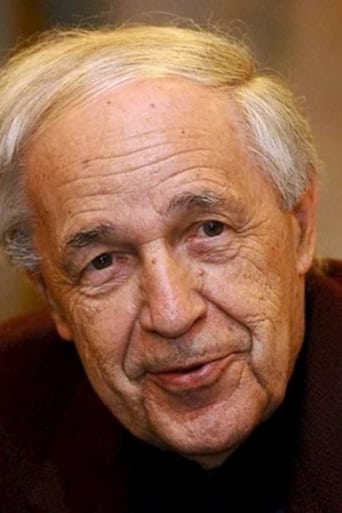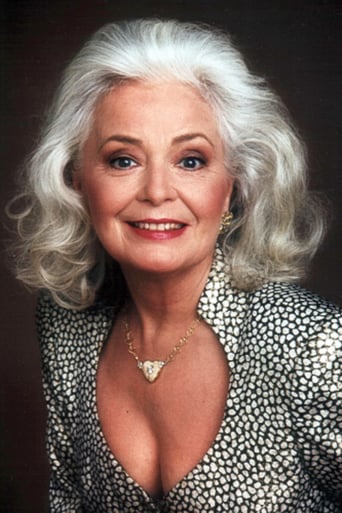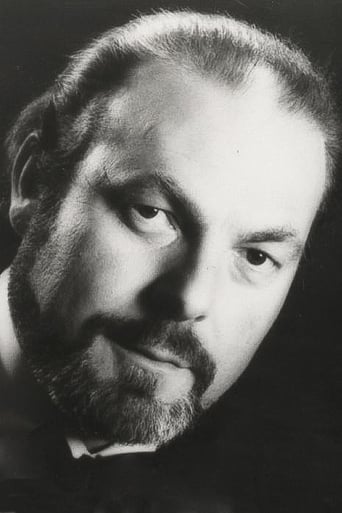Hellen
I like the storyline of this show,it attract me so much
Reptileenbu
Did you people see the same film I saw?
SparkMore
n my opinion it was a great movie with some interesting elements, even though having some plot holes and the ending probably was just too messy and crammed together, but still fun to watch and not your casual movie that is similar to all other ones.
Fairaher
The film makes a home in your brain and the only cure is to see it again.
TheLittleSongbird
All four operas of Wagner's Ring Cycle are amazing and feature some of the best music of any opera(Wotan's Farewell especially). Of the four Chereau productions of the early 80s, I did like them all, but my favourite was Die Walkure. This Gotterdammerung is still a very good production if my least favourite of the four. Visually it is acceptable, with the destruction of Valhalla quite impressive, if lacking Siegfried's lushness and Die Walkure's authority. While the colour could have had more clarity it does look and sound good on DVD.The production does fare brilliantly musically though. The orchestral playing is so powerful and gripping throughout, and Pierre Boulez's conducting is insightful and never rushes or drags. The performances are great. Manfred Jung and Gwyneth Jones have been seen as controversial casting, but while I can see why I liked them both. Jung is naturalistic and engaging as Siegfried, though the character goes on a more believable journey in Siegfried, and copes well with the role's demands even with some strident tone(like in the prologue) and the nagging feeling that you wish there was a more powerful voice.Jones doesn't have the most beautiful voice of anybody singing Brunnhilde, but I still thought she was wonderful. Brunnhilde is a huge role and one of Wagner's most taxing I think, and Jones' singing is powerful and often thrilling, if losing some sensuous quality at the top and she is incredibly gripping on stage, intensely and moving. Of everybody else, I was impressed with Franz Mazura's Gunther, very resonant singing and an evocative interpretation. Jeannine Altmeyer effectively conveys sorrow and rage as Gutrune, Hermann Brecht booms and makes the skin crawl as Alberich and Gwendolyn Killebrew impresses as Waltraute. Fritz Hubner is in better voice than as his mostly effective but woolly Fafner in Siegfried, and while his Hagen is not as terrifyingly evil as Matti Salminen(the best in the role on DVD in my opinion) it is still a more than reliable performance. Overall, very good if not quite knocking my socks off like Die Walkure did.8/10 Bethany Cox
FloatingOpera7
While there are many critics who will object to my review, I stand by it. This 1970's Centennial Celebration of Ring Des Nibelungen is not an orthodox, traditional performance of Wagner's masterpiece tetralogy. It is French director Pierre Chareau and conductor Pierre Boulez's creation which is akin to the post-modern, avant-garde, symbolic Peter Seller productions. So if you like this type of theater, then this Gotterdammerung is for you.But not for me. Having seen all four operas from this series, I have to give it a low rating. Bayreuth should not have accepted this garbage.Instead of gods, goddesses, dwarfs, Rhinemaidens, shining Valhalla in the sky, a rainbow bridge and a climatic world end, we get instead hours of abstract and minimalist fluff. The concept seems to be that the story of the Ring is timeless and repetitive. Man's lust for power and his decline was set in motion from the beginning of time. The costumes seem to be from diverse centuries, concluding with the early 20th century. At the end, a crowd stands around as if dead while a fake fire and smoke surround them. Manfred Jung, a blonde Germanic tenor, is the picture of Wagnerian heroism as Siegfried. But he doesn't have the right vocal chords to properly sing a great Siegfried. Wolfgang Windgassen and James King were the best Siegfrieds of the 20th century, everyone knows that and while Dame Gwyneth Jones garnered a lot of fame and acclaim for her Brunhilde, she is underpowered and unsteady in her highest register. Her voice even cracks under pressure. While a lot better than the lightest voiced Brunhilde of all, Hildegard Behrens, Gwyneth offers none of the excitement of Birgit Nilsson or Astrid Varnay, the best Brunhildes. This is a weird production that left me feeling sick. There are better versions out there like James Levine's Met Opera productions from the 80's and also the documentary on Solti's studio Ring.
Numan Parada
How refreshing and appropriate, it seems, that this interpretation of Wagner's final Ring Cycle opera takes us away from the distant places of Norse lore to the gilded towers of the Industrial Age. The way I see it, Götterdämmerung tells the story of a world on the brink of losing its faith. There's nothing to believe in anymore; there's no one you can trust. The Gibichung Hall doubles as a contempt-ridden snake pit, surely an ode to man's vapid purpose. Thus the world's wealth cannot disguise the misery of its existence. Our way of life is unsustainable and heading for ruin. The god's absolutely final chance to maintain the status quo (in the form of Siegfried) fails.Ah, let's chat about Siegfried: For a "free hero," he's as whiny as Luke Skywalker and as reckless as Harry Potter, and yet these latter two are not as easy to beguile. By today's standards he would never be considered a hero in any way. At best, he's oblivious to the pressing challenges that the world faces. At worst, he's an idiotic numb-skull who won't heed to any good advice, not even his own. If anything, the real hero of this debacle would be Brünnhilde, who in The Valkyrie saves a defenseless girl from a terrible fate, stands up for herself in answering to her considerably peeved super-father, and here returns the Rhinegold to its proper owners.And yet, despite all of this, when Brünnhilde sings about the end of the gods, it plays the same leitmotif that opens The Rhinegold: Will the world start anew? Will there be new "gods" to take the reins? Is there hope still? What do we know? That's the great things about this opera, and especially this production. In the end, all great works must do one thing to survive the wear of time, of which this opera succeeds: To leave us wondering about what could have been and what could still be.



